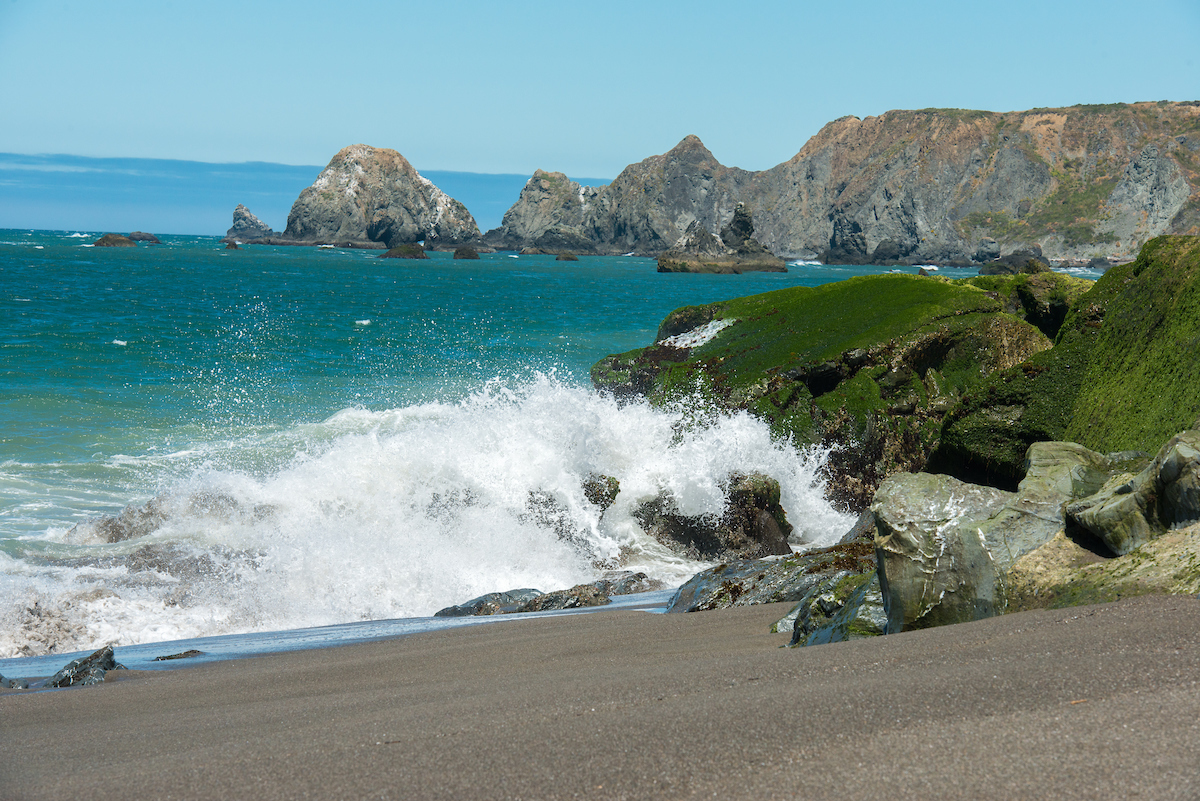Goat Rock Beach is located between Goat Rock Point and the Russian River along the Sonoma County shore near the town of Jenner, California. DWR/2017
SACRAMENTO – With the Global Climate Action Summit underway in San Francisco, the Department of Water Resources (DWR) today announced its commitment to cut greenhouse gas (GHG) emissions by 60 percent or more below 1990 levels. In less than 30 years, DWR has already reduced annual GHG emissions by more than one million metric tons, the equivalent of taking 200,000 cars off the road.
As a major energy consumer and producer, DWR plays an important role in California’s strategy to reduce GHG emissions. DWR owns and manages California’s State Water Project (SWP), the largest state-owned water conveyance and power generation system in the United States, serving more than 27 million people and 750,000 acres of farmland.
The SWP produces approximately 14 percent of the state’s GHG-free hydroelectricity, and self-generates, on average, about 60 percent of its own energy needs. DWR’s just-released “Clean Energy for California” publication offers more information about how DWR is integrating renewable energy into its operations.
Speaking during today’s Global Climate Action Summit, DWR Director Karla Nemeth highlighted the department’s commitment to taking strong action on climate change.During opening remarks at the Water Pavilion, an affiliated summit event, Nemeth emphasized the role that science plays in water management.
“I want the department to be a leader in bringing science to the table,” Nemeth said. “When people think of coming to work at DWR, they can think of the importance of applying scientific disciplines to the infrastructure world that dominates water supply and flood management.”
Further underscoring the role of science in water management, the department today released the second phase of its Climate Action Plan, which provides a framework for incorporating climate change analysis into DWR planning and program activities.
In recent months, DWR scientists have been at the forefront of climate change studies that seek to both lessen and adapt to climate change impacts. In the Fourth Climate Change Assessment, released in August by the California Natural Resources Agency, DWR analyzed how new weather extremes will affect future water supplies.
Contact: Maria West, Information Officer, Public Affairs, Department of Water Resources
(916) 653-5114 | maria.west@water.ca.gov
